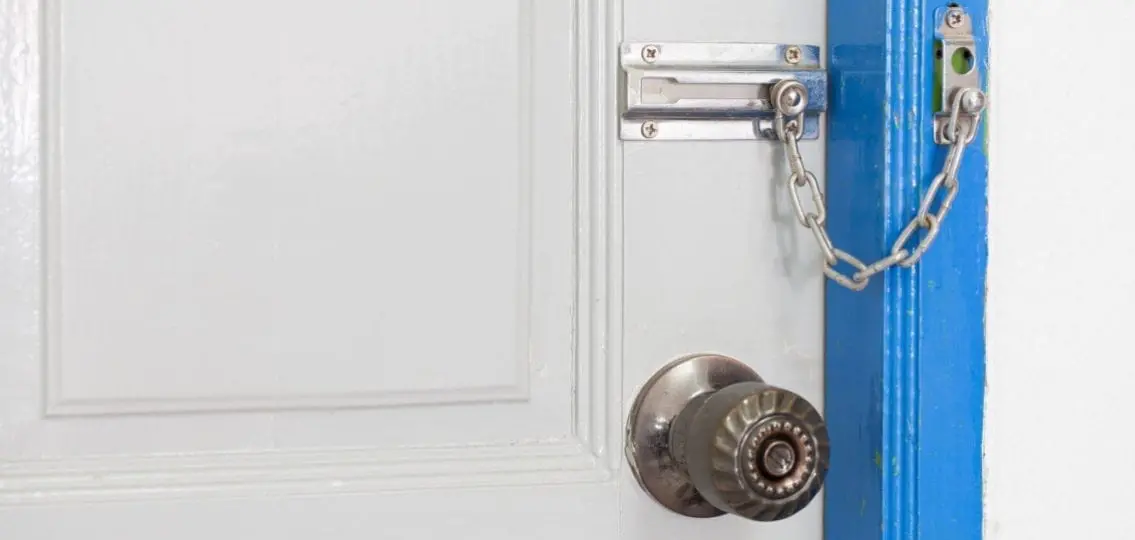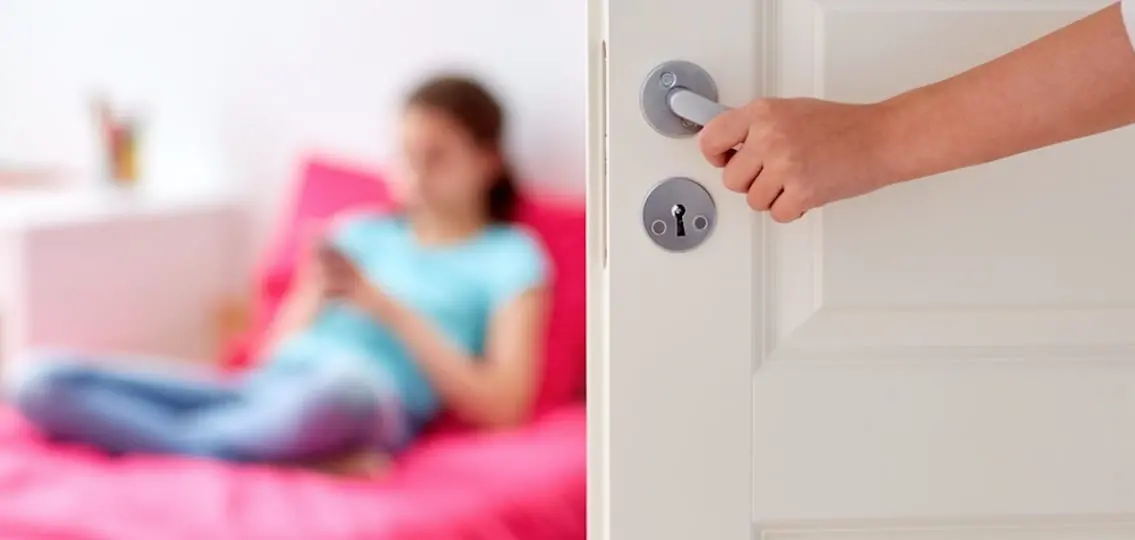The door between our kitchen and living room is rarely closed. Unless we are trying to keep the dog from sneaking downstairs at 2 am to snatch a plate of cookies from the table, it stays open. That’s why I was surprised when it was shut—rather forcefully—by my twelve-year-old daughter. My wife and I were sitting in the kitchen, talking when I noticed a wisp of Maddie’s hair disappear behind the door as it closed.

With equal parts frustration and curiosity, I followed her and asked, “What’s up?”
“Nothing. You two are just being really loud.”
“Since when do our conversations annoy you?” I thought. Other reactive, parent-power-play thoughts raced through my head—but thankfully, not out of my mouth:
This is our house, and you will not shut us out.
You need to learn to use your words to communicate with us.
Don’t take your frustrations out on us, young lady.
Instead, I stood there staring at this child, who to this point had never done anything but invite her parents to sit with her, to play cards, or to watch a show together. Now, seemingly all of a sudden, she wanted to be alone.
Our finished basement is a sports playground for our son, who is obsessed with soccer, basketball, football—whatever is in season. Since he was old enough to hold a nerf ball, he’s run around the Berber carpet, shooting into a hoop over the door, kicking into makeshift soccer goals, and tossing touchdowns to himself. The TV is always tuned into a sporting event, but he is never sitting on the couch. Though he could entertain himself for hours while reenacting plays from the games he watched, he never wanted to be alone.
“Mom, Dad, can someone come down with me?” his little voice would ask. And as he got older, he would add, “It’s okay if you do your work on the computer, just come down here.” He would do his own thing, but he was only comfortable if someone was in the room with him. Now, like his sister, he closes the door, and asks us what time he needs to be upstairs for dinner—hint-hint—I need my alone time.
So doors are now beginning to separate our family. Sometimes they are slammed in frustration, but mostly they symbolize respectful requests for privacy. I’ve been using my own more often as well. When I write, I now close my bedroom door. As I pause to ponder my next sentence, I will look over my shoulder, wondering if—sometimes hoping that—someone will burst in without knocking. But it doesn’t happen. If they need me now, they shout from a floor below.
But just last night, as I was reading in bed, the door slowly opened, and I heard my daughter whisper, “Dad? Are you awake?”
“Yes.”
As I heard her little feet tiptoe across the floor, she could have been six, even four years old. But she is pushing thirteen.
“I just wanted to say goodnight and get a quick hug,” she said.
“Anytime,” I replied.

She danced around to the other side of the bed and hugged her mom. As her little feet pattered away, she whispered, “Love you,” and headed for her room, leaving our door open.




